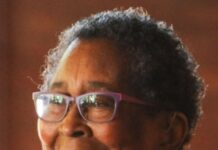According to the American Society of Engineering only 3.5 percent of all bachelor’s degrees awarded in engineering in 2014 went to African Americans. And this percentage has been declining over the past decade.
 Now the National Society of Black Engineers (NSBE) has announced a new initiative called “Be 1 of 10,000.” The goal of program is to increase the number of African Americans who receive bachelor’s degrees in engineering to 10,000 annually by 2025. The most recent annual figure is 3,620.
Now the National Society of Black Engineers (NSBE) has announced a new initiative called “Be 1 of 10,000.” The goal of program is to increase the number of African Americans who receive bachelor’s degrees in engineering to 10,000 annually by 2025. The most recent annual figure is 3,620.
The NSBE is conducting a major outreach program to students in the seventh grade in an attempt to encourage these students to excel in science and mathematics. The NSBE will provide online materials to help these students succeed. The society will also expand its Summer Engineering Experience for Kids (SEEK) program and encourage more high schools in predominantly Black districts to offer calculus.
Neville Green, a senior in chemical engineering at the City University of New York and chair of the NSBE, stated that his organization’s leadership “is totally committed to this campaign. As students and professionals in STEM, we know the importance of driving this change to ensure the future of our communities.”
Dr. Karl W. Reid, the executive director of the NSBE, added that “graduating 10,000 Black engineers per year will generate benefits that extend far beyond our organization. By harnessing the STEM talent of greater numbers of African Americans, we are expanding the corps of problem solvers and innovators in service to the nation.”











